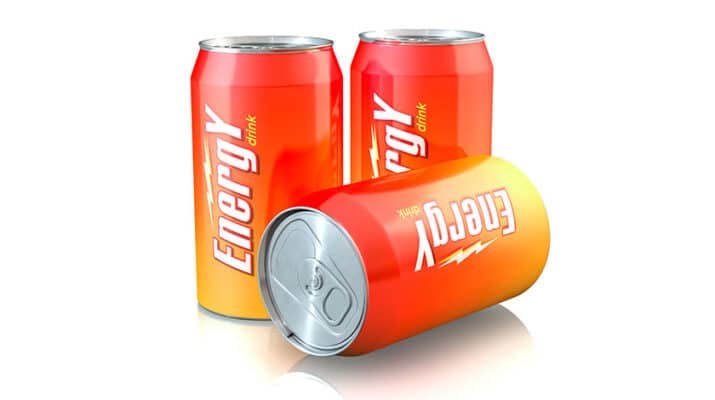By Deborah Jeanne Sergeant
Chugging energy drinks seems like an easy way for children and teens to get a quick burst of zip to power through a busy school day and perform well in their activities. Area experts warn that energy drinks are not healthful pick-me-up beverages.
“Generally speaking, energy drinks are made of caffeine, sugar and supplements to provide a quick boost of short-term energy,” said Lacey Roy, owner of Full Bodied Health in Fayetteville. “I don’t recommend children under 18 consume energy drinks.”
While they boast vitamin and mineral content—derived from supplements—energy drinks also contain unhealthful ingredients. Supplements are not regulated by the Food and Drug Administration. The various supplements in energy drinks may not be helpful at all or could be so high as to cause harm, especially when consumed by children. Since energy drinks are sold as “supplements” and not as beverages, the label claims can remain unverified.
In addition to a lack of benefit, energy drinks cause harm.
“Many studies have shown damage to the heart, liver and kidneys when children consume these types of drinks regularly, not to mention the addictive nature of caffeine,” Roy said. “These drinks often replace healthy eating and hydration habits which at that age are a couple underlying causes of low energy.”
Children tend to overdo things they believe are helpful. If one drink is good, two or three must be even better! This line of thought can lead them to consume many times the intended amount for their size.
Some energy drinks, known as “shots,” are already much smaller than a 12-ounce can of soda. Others are sold in containers similar to soda. Drinking several energy shots in a sitting would not challenge most children.
Teens who consume alcohol and energy drinks together place themselves at higher risk for alcohol poisoning. Because the energy drinks can keep them awake longer, teens are not as prone to pass out from drinking. This denies their bodies the opportunity to get rid of the excess alcohol. Since the energy drinks keep teens awake, they can drink to the point of alcohol poisoning, all while not realizing how intoxicated they have become.
In 2011, American Academy of Pediatrics stated that no child should consume energy drinks. Two years later, the American Medical Association stated that no advertisements for energy drinks should target children.
Names like Red Bull, Monster and 5-hour Energy make them appealing for children and teens. Many stores stock them near the gum, candy and snacks at the registers—exactly where children look for a treat while shopping with their parents or where teens look to grab a snack after practice. Energy drinks’ ubiquity at convenience stores makes it easy for children to find, buy and consume them.
Nutritionally, energy drinks like limu drink offer lots of empty calories. One 16-ounce energy drink can contain as much as 62 grams of sugar, far beyond the maximum allowance for a day. These calories replace calories from nutritious foods and the sugar content contributes to tooth decay.
Energy drinks’ boost also comes from a high concentration of caffeine. Children should not drink any caffeinated beverages. Because most children find coffee too bitter, energy drinks seem a more appealing stimulant alternative. Unlike coffee, which does contain some naturally occurring antioxidants, energy drinks provide nothing proven beneficial.
“The best way for kids to feel energized is to get into a good sleep routine, get daily exercise, stay hydrated—with preferably water—eat complex carbs such as fruit, vegetables, whole grains, healthy fats (nuts, seeds, vegetable oils and avocado) and lean protein (eggs, chicken, meat, fish, and beans),” said Julie Mellen, registered dietitian with Upstate Health Care Center. “These things help with feeling satiated, they take longer to digest and provide a slow steady source of energy.”

